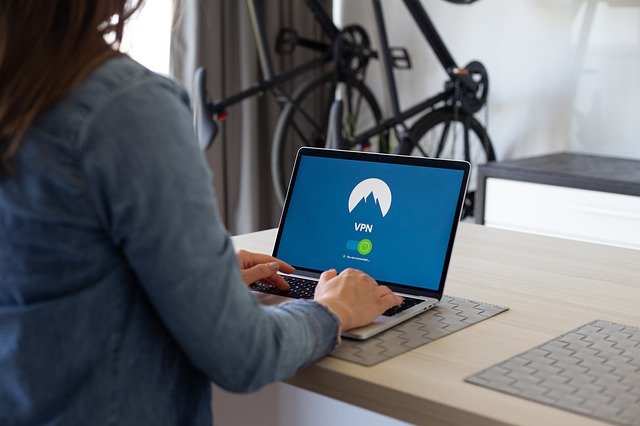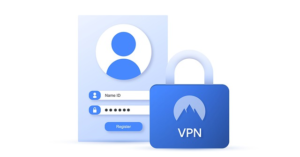
(Photo : Pexels)
Employee surveillance has been a growing market over the past decade. Oftentimes, company laptops or workstations are tweaked to monitor employee activities by default to measure productivity and gauge whether employees are hooked into the system during working hours.
The demand for employee surveillance software and data monitoring techniques has peaked by 50 percent since the onset of the pandemic due to the hybrid work culture that COVID-19 has brought about. Unfortunately, third-party surveillance software could lead to severe privacy breaches.
There are also several surveillance software options that employers may secretly deploy to track the websites you are visiting and the applications you use. Furthermore, if you are using your work laptop to send private emails or messages on social media, your employer might be able to monitor them, as well. In addition to this, some surveillance apps have the ability to track your physical movements and geolocation, and even take over control of your webcam to check that you aren’t watching Netflix at work.
Companies might be able to legally enforce some of these monitoring techniques based on the country you are living in, but they might also be required to inform employees in detail if they deploy extensive surveillance modes including access to webcams and geolocation tracking.
If you’ve ever felt like your Internet speed dips whenever you try to download a huge file or watch a 4K video, there’s also a chance you might be subjected to bandwidth throttling or capping by your Internet service provider (ISP).
If your data consumption is very high, your ISP might reroute your Internet traffic through slower channels to provide a positive experience to all of their users. This process is also called bandwidth shaping or throttling, and it requires your ISP to monitor all of the inbound and outbound traffic from your devices.
How a VPN can Help?
Virtual private networks (VPNs) could be your gateway to Internet freedom and anonymity. What a VPN essentially does is encode the data coming in from your device to their servers, and then safely decodes it before sending it out to the Internet. It also encodes all inbound traffic before transmitting it to your device. Only you and the VPN have the key to decipher this encrypted data.
How does this help? Well, if anyone wants to monitor your online activity while you are using a VPN, they’ll find that the data packets are originating from a VPN server and not your device since your IP address will be safely masked. In other words, they won’t be able to see what you do on the Internet or limit your bandwidth in any way.
The same goes for employee surveillance. Any activity outside of your work terminal won’t make sense to surveillance software since your identity will remain anonymous through the VPN software. This will help you prevent any intrusive employer monitoring techniques.
Moreover, a VPN could help you outfox advertisers and bypass Internet censorship so you can watch your favorite movie show from anywhere in the world. This would be particularly helpful for those who travel a lot.
While there are many VPNs out there to choose from, your checklist should include verifying their protocols, whether they collect and store data, and how fast and widespread their servers are. We came across a global VPN leader called ExpressVPN that has developed their own encryption protocol, doesn’t log your web activity on their VPN servers, and offers superfast servers spread across 160 locations in 94 countries with unlimited bandwidth.
How Does ExpressVPN Work?
Founded in 2009, ExpressVPN is a global leader in the VPN industry with over 3,000 strategically located superfast servers encrypted by the 256-bit AES (Advanced Encryption Standard) protocol, which is used by the U.S. government and security experts worldwide.
Their unique VPN split tunneling feature allows you to decide which online activities you want to execute with and without a VPN. Hence, you may choose to secure your connection with their VPN when banking, shopping online, or sharing any sensitive information while the rest of your web activity is routed directly through the Internet.
Their VPN servers don’t log your web activity like your IP address, browsing history, traffic destination, metadata, or Domain Name Server (DNS) queries. Unlike many VPN service providers who might rely on hard drives to carry Internet data through their servers, Express VPN’s TrustedServer technology, which is audited by PricewaterhouseCoopers, runs their server entirely on Random Access Memories (RAMs) or volatile memory.
When a server is relying on hard drives, it retains all of the data until they are overwritten or deleted. Until the data is deleted, persistent hackers might get a decent enough time window to bypass server firewalls and place a backdoor to steal data until traced by security experts.
What ExpressVPN does is run their VPN servers directly on RAMs or volatile memory since RAMs need to stay switched on to store data. This means that all of the data is erased whenever a server is rebooted or switched off. This way, they are able to minimize vulnerabilities by many folds. Moreover, all of their servers run the latest update patch to eliminate misconfigurations. If not done, this might cause inconvenience to their users.
Unlike most VPN service providers out there, ExpressVPN has also created their own VPN protocol Lightway that uses wolfSSL encryption to offer dynamic encryption. This means that the keys used to encrypt and decrypt Internet traffic changes frequently, making it almost impossible to snoop in on your data. Furthermore, they are one of the few VPN providers that offer 24/7 customer support on live chat to resolve all kinds of VPN-related customer issues.
Click here to learn more about ExpressVPN membership deals.
ⓒ 2021 TECHTIMES.com All rights reserved. Do not reproduce without permission.
Source: https://www.techtimes.com/articles/267369/20211101/vpns-cyber-threat-protect-online-privacy.htm


